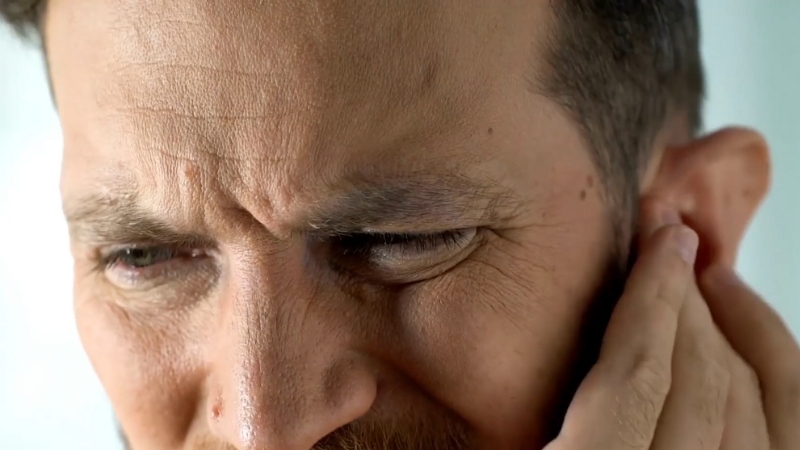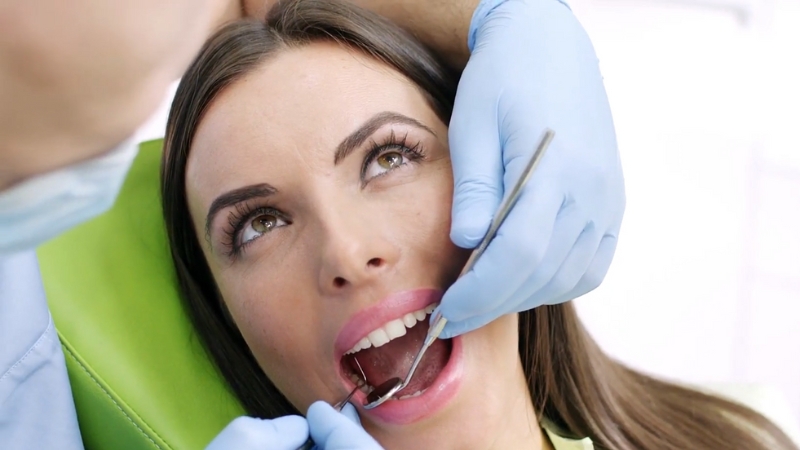Wisdom teeth are the last set of molars to emerge, often appearing in your late teens or early twenties.
While they can sometimes grow without issue, they frequently cause discomfort or complications. A common yet surprising symptom linked to wisdom teeth is ear pain.
If you’ve been struggling with unexplained earaches, your wisdom teeth could very well be the culprit.
But how does this connection work, and what can you do about it?
Let’s explore.
The Link Between Wisdom Teeth and Ear Pain

The jaw and ear are closely connected by a network of nerves and muscles. When wisdom teeth begin to grow, especially if they are impacted (unable to emerge properly), they can create pressure and inflammation in surrounding tissues. This irritation can radiate pain to nearby areas, including the ears.
How Wisdom Teeth Impact Nearby Structures
The trigeminal nerve, which supplies sensation to your face and jaw, plays a significant role. When wisdom teeth press against this nerve, it can cause referred pain that feels like it’s coming from the ear.
An impacted or misaligned wisdom tooth can lead to inflammation in the temporomandibular joint (TMJ), which connects your jawbone to your skull. Pain in this joint often mimics an earache.
If a wisdom tooth only partially erupts, it can trap food and bacteria, leading to infection (pericoronitis). This localized infection can spread to nearby tissues, causing pain that radiates toward the ear.
Signs Your Ear Pain Could Be Related to Wisdom Teeth
View this post on Instagram
It’s essential to differentiate wisdom tooth-related ear pain from other causes, such as sinus infections, middle ear issues, or TMJ disorders. Here are some clues that your wisdom teeth may be the source:
- Pain That Worsens When Chewing or Talking – If your ear pain intensifies while eating or speaking, it could be linked to stress in the jaw from impacted wisdom teeth.
- Swelling Around the Jaw or Cheek – Visible swelling in the area near your wisdom teeth often accompanies ear pain when they are the root cause.
- Difficulty Opening Your Mouth Fully – If impacted wisdom teeth are affecting your TMJ, you might notice restricted jaw movement, which can amplify discomfort.
- Tender Gums or Bleeding – Painful or swollen gums around the wisdom teeth site are a strong indication of inflammation or infection contributing to referred ear pain.
- No Other Signs of Ear Infection – If your doctor has ruled out ear infections or other ENT-related issues, your dentist may need to evaluate your wisdom teeth.
How Dentists Diagnose the Problem
Dentists use a combination of clinical examination and imaging techniques to determine whether wisdom teeth are causing your ear pain.
Here’s how the diagnosis is approached:
- Detailed Patient History – You will be asked about the onset, duration, and nature of your symptoms, as well as any previous dental issues or ear pain.
- Physical Examination – By checking for visible swelling, gum tenderness, and tooth positioning, you can assess whether your wisdom teeth are likely to be the cause.
- X-Rays or Panoramic Imaging – Imaging allows to see the positioning of your wisdom teeth, their relationship to surrounding structures, and any signs of impaction or infection.
- Rule-Outs – If necessary, your dentist may collaborate with an ENT specialist to exclude middle ear or sinus problems before concluding that wisdom teeth are to blame.
Treatment Options for Wisdom Tooth-Related Ear Pain
Once the problem is identified as the source of your ear pain, your dentist will develop a treatment plan tailored to your specific situation.
Here are the most common solutions:
1. Pain Management
For temporary relief, over-the-counter pain relievers like ibuprofen can reduce inflammation and ease discomfort.
Warm salt water rinses or applying a cold compress to the jaw can also help manage symptoms until definitive treatment.
2. Monitoring
If your wisdom teeth are only beginning to emerge and aren’t causing severe issues, it may opt to monitor their progress with regular check-ups and imaging.
3. Extraction
In most cases, especially if the teeth are impacted or infected, removal is the most effective solution.
Wisdom tooth extraction is a routine procedure that can eliminate the source of your discomfort.
- What to Expect: Wisdom tooth removal is typically done under local or general anesthesia. Recovery involves some swelling and tenderness, but most patients return to normal activities within a week.
- Benefits: Removing problematic wisdom teeth not only resolves ear pain but also prevents future complications like infections, cysts, or damage to adjacent teeth.
4. Addressing Secondary Issues
If your wisdom teeth have contributed to TMJ inflammation or other jaw-related problems, additional therapies like physical therapy or custom dental appliances may be recommended.
Why Early Intervention Matters
@nepalidentist Impacted wisdom tooth may cause gum swelling, pain, and inability to open mouth. Such wisdom tooth needs to be removed #dentist #nepali #drbiplob #premierdentalnepal #oralhealthawareness #impactedwisdomtooth #pain #swelling #दन्तस्बास्थय #प्रिमियरडेन्टल #stayhealthy ♬ original sound – Dentist Premier
Delaying treatment for problematic wisdom teeth can lead to worsening pain and additional complications, such as:
- Chronic Infections: Untreated infections can spread to other areas of the head and neck.
- Cyst Formation: Impacted wisdom teeth can develop cysts, which may damage nearby bones and teeth.
- Permanent Nerve Damage: Prolonged pressure on the trigeminal nerve can lead to lasting discomfort or numbness.
By addressing wisdom tooth issues early, you can avoid these complications and ensure faster recovery.
When to Seek Professional Help
If you’re experiencing persistent ear pain alongside jaw discomfort or swelling, don’t ignore it. Schedule a dental evaluation promptly if you notice:
- Pain that doesn’t improve with home remedies
- Swelling that spreads or worsens
- Difficulty opening your mouth
- Signs of infection, such as fever or pus
Take Charge of Your Oral Health

Wisdom teeth are notorious for causing unexpected problems, and ear pain is no exception.
The good news is that identifying and addressing the issue early can provide relief and prevent further complications.
If you suspect your wisdom teeth are behind your ear pain, don’t wait, consult your dentist today for a thorough evaluation and personalized treatment plan.
